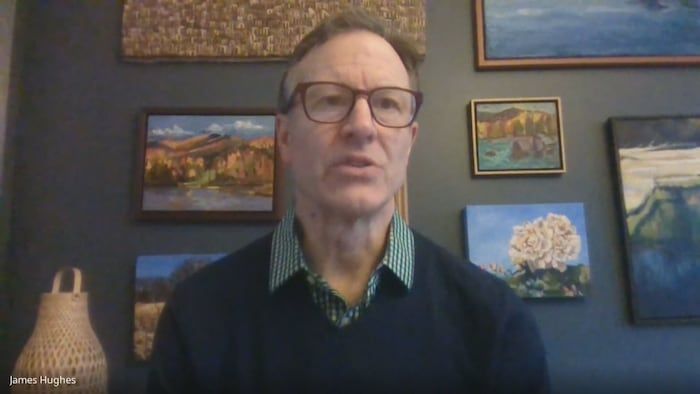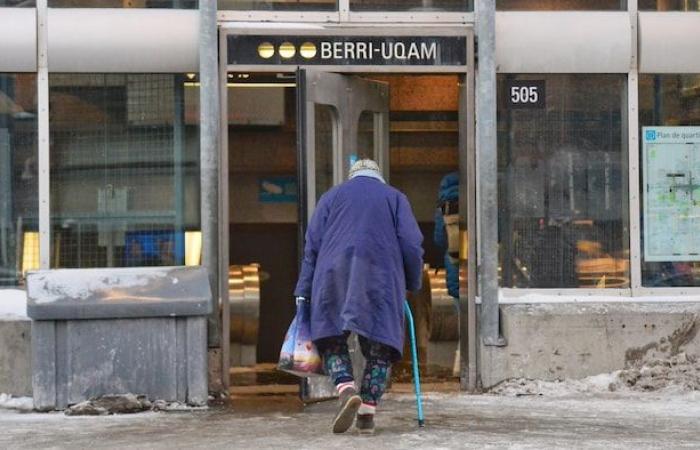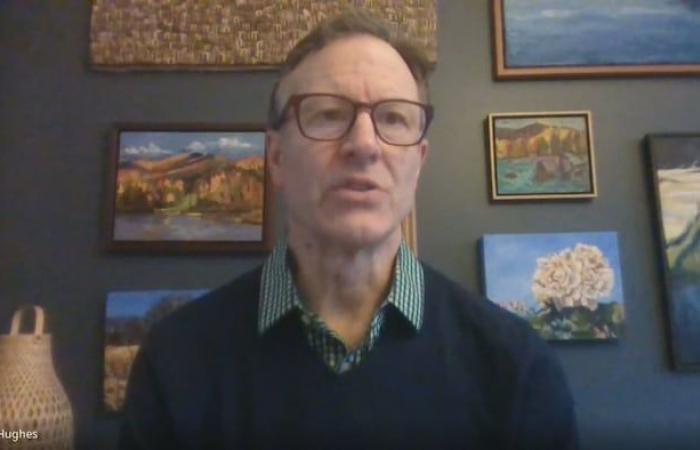More and more people experiencing homelessness are using emergency rooms in hospitals as a place of refuge, particularly during periods of extreme cold. The observation is obvious in certain Montreal hospitals, where doctors are asking the authorities to do more to provide the necessary resources to this vulnerable population.
At Notre-Dame Hospital in downtown Montreal, it happens in cold weather that around ten people experiencing homelessness come to the emergency room, under medical pretexts, to spend the night. A phenomenon which could continue to intensify, considering the circumstances.
We have a number of external resources, therefore shelters, which are limited and we also have a seemingly obvious increase in the number of people experiencing homelessness.
notes Dr Amar Boudjerida, doctor and deputy head of the emergency department of CIUSSS of the South-Central Island of Montreal.
We have people who will use waiting rooms mainly as a place to warm up.
he continues. Some simply tell us they have nowhere to go, while other times some may find a medical reason to spend more time in the waiting room.
We cannot ask someone to leave when we know that they will find themselves in conditions that are dangerous for their health. So we try to play the role of good father as best we can.
Open in full screen mode
Amar Boudjerida, doctor and deputy head of the emergency department of the CIUSSS du Centre-Sud-de-l’Île-de-Montréal
Photo : -
The University of Montreal Hospital Center (CHUM) is experiencing a similar problem. Special measures have even been put in place to deal with the situation.
Like many hospitals, the CHUMand more particularly emergency personnel, face an increase in homeless people during periods of extreme cold
indicated the establishment in a statement to -.
Agents are deployed at each of the hospital entrance doors as well as in the emergency room. Social workers are also present in the emergency room to offer support and redirect people experiencing homelessness to resources adapted to their needs. Our priority is to provide quality, safe care and services to patients, while maintaining a safe environment for staff.
A social crisis
According to James Hughes, president and CEO of the Old Brewery Mission, the influx of people experiencing homelessness into emergency rooms during cold weather is not a new problem.
It’s long been a place for people who want shelter, who don’t want to pitch a tent in a park or walk into emergency services like the Old Brewery Mission, he said. But it’s clear, according to reports, that it’s become an increasingly significant phenomenon inside emergency rooms.
Open in full screen mode
After the closure of businesses in metro stations at night, there are few or no places left in shelters or in heat stations.
Photo: - / Jean-Claude Taliana
Mr Hughes believes that this is a survival strategy for people experiencing homelessness who have no other place to go
in a city who sees more and more distress and challenges in this regard
.
Faced with housing, homelessness and opioid crises, hospital emergencies will be used more and more as a refuge, as a survival strategy by these people
believes Mr. Hughes.
The mandate of hospital authorities is to address medical emergencies. People experiencing homelessness are facing an emergency, but it is more of a social emergency.

Open in full screen mode
James Hughes, President and CEO of the Old Brewery Mission
Photo : -
For Dr Amar Boudjerida, there is no simple solution and the solution cannot come from emergency rooms
.
The solution is simply to offer more social housing, to help get people off the streets. Plan B would be to at least have more shelters and warmth centers. We see that the City is trying to make efforts, it recently opened a warmth center near city hall, but it is not enough. The government of Quebec must contribute
he maintains.
A position shared by the Association of Emergency Physicians of Quebec (AMUQ).
Emergency rooms play a fundamental role in providing care accessible to everyone, whatever the circumstances. However, we recognize that their use for non-medical purposes by vulnerable people highlights a lack of social resources and support for these populations
affirmed the AMUQ in a statement to -.
It is essential that decision-makers, including the ministers responsible for social services and housing, take their share of responsibility in this growing social phenomenon.
With information from Gabrielle Proulx and Charlotte Dumoulin








